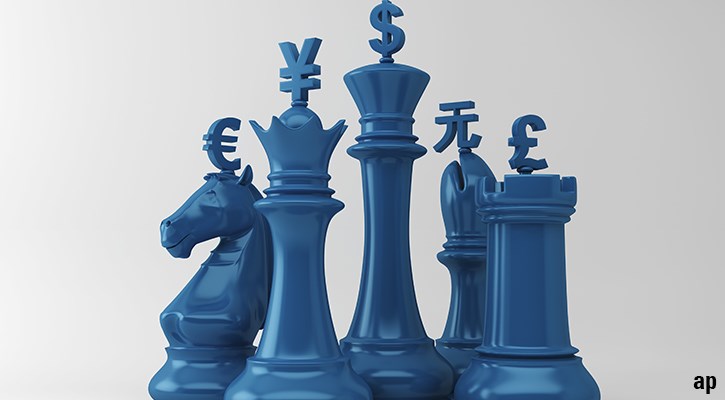
Some observers believe that under Donald Trump businesses have recaptured their "animal spirits" and are acting with renewed confidence, which has stimulated job creation and the stock market. They also say companies are benefiting from January's tax cut.
Such claims are difficult to corroborate. Nobody measures the animal spirits of corporate executives, nor can the effect of a single factor on the economy be readily judged. Even if US job growth had accelerated since January, it would be speculative to credit that change to the tax bill. It is more speculative yet when such an event has not occurred.
One possible test of “the Presidential Premise”, was last Wednesday's stock market performance after the midterm elections. If the business community has been heartened by presidential actions, then it presumably would been discouraged by Tuesday's midterm election results, which thoroughly spiked the idea of further tax cuts. That did not happen; stocks rallied sharply.
Not that the opposition should declare victory. It would be no more believable to claim that the stock market saluted the Democratic victory in the House of Representatives than it would be to claim that equities rose because buyers were pleased that the Republicans retained the Senate. Neither claim makes much sense. If anything, the results suggest that investors desire federal gridlock.
An alternative explanation is that stocks surged because the market does desire gridlock. With a divided government, goes the theory, the two sides will forge a compromise that is better than what either could achieve on its own. This narrative is unconvincing. Without question, the House will launch a series of investigations of the executive branch. When that happens, the President stated, he will adopt a "warlike posture". Few compromises would seem to be forthcoming.
The final justification offered for Wednesday's rise, which most reporters offered, was that the election's results removed the election's "uncertainty". That account, too, strikes me as less than credible. There was no doubt that an election would occur; and there was no doubt that its results would land within a narrow range, with the two parties roughly splitting the Senate and House. What uncertainty existed to dispel?
Market Moves are Stories to Deconstruct
Which leads to this column's point: avoid analysing stock-market movements. Equities cannot be interviewed. They cannot explain why they behaved as they did. Nor are scientific explanations possible. What remains are stories that can easily be deconstructed. They tell much about the speaker, but little about reality.
This sounds simple. Shrug off stock market fluctuations, because their signals are illusory. One might as well try to interpret the pattern of several dozen coin flips.
There are reasons why the stock market rises or falls. However, if those reasons either cannot be divined, or can be understood but contain no additional information – for example, stocks decline when the monthly inflation report is higher than expected – then the comparison holds, despite that difference. Whatever insight the market's movement seems to contain, it does not.
I spent many years diligently following the daily change on the Dow Jones, then attempting to determine what lay behind that day's moves. Breaking that habit required acknowledging my errors. It meant realising that for each time when the market acted as I expected, there was another time when it did not. I possessed no insight. Nor did others. Our apparent forecasting successes were random events, the coin turning up heads, with those of us who had anticipated such a result savouring our sagacity.
There's always the chance that closely monitoring stock market changes, and attempting to think through their implications, could lead to portfolio trades. Such actions would have an expected value of zero before taxes and trading costs, and a negative value afterward. Worse yet, the anxieties caused by such trades might eventually lead the investor to reduce her equity stake.
Of course, I am not immune to such impulses. Should equities plunge, as on Black Monday 1987, I would snap to attention. Whether I would act on that information is unclear – aside from some tax-loss sales, I made no trades during the 2008 financial crisis – but I would certainly investigate the problem. It would seem irresponsible to pretend as if the decline had not occurred, without attempting to understand its causes.
The ideal stockholder, I suspect, doesn't even sweat the catastrophes. He understands that attempting to decipher clues from huge stock market movements is no sounder than doing so from small ones. Therefore, he resists all such analysis. He just plods ahead, holding the same portfolio, as if the disaster had not occurred.
John Rekenthaler has been researching the fund industry since 1988. He is a columnist for Morningstar.com. While Morningstar typically agrees with the views of the Rekenthaler Report, his views are his own.





























